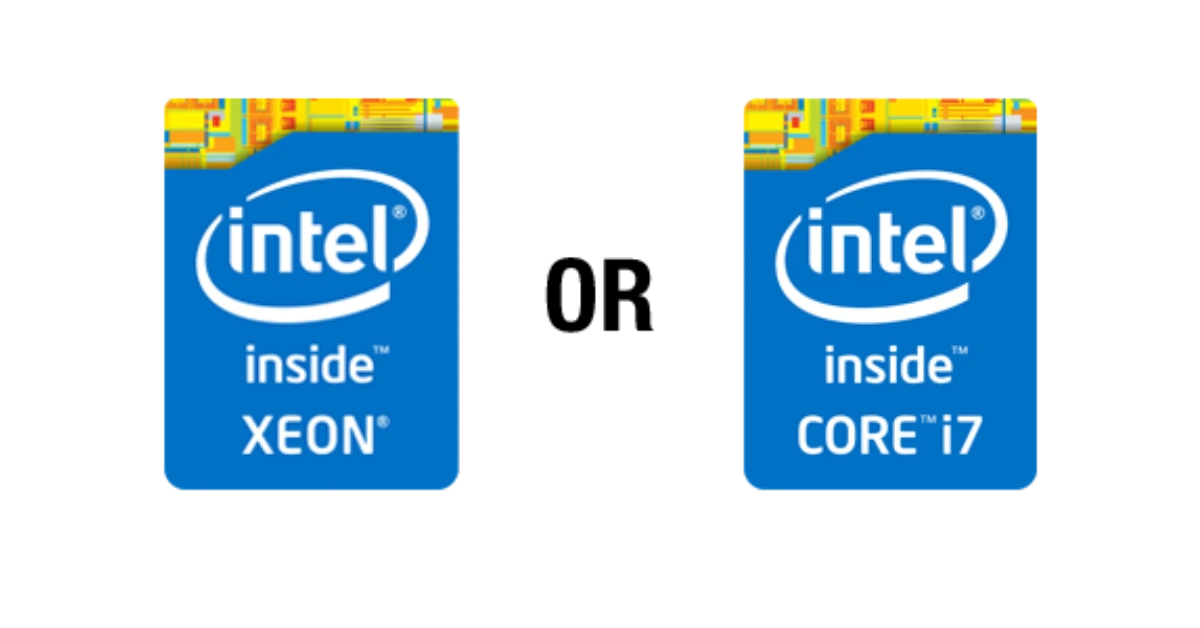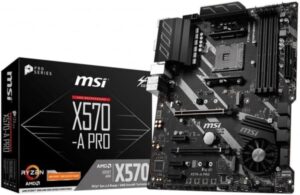Table of Contents
ToggleXeon vs i7 – What’s the difference? Processor Xeon vs i7
When selecting a processor for your computing needs understanding the distinctions between Intel’s Xeon vs i7 Core CPUs is important. Both are powerful but they are different for user requirements. Today My team and me tell you differences between Xeon and i7 processors highlights the advantages of Intel’s Core i9/i7/i5 series and guidance on choosing the best processor for your needs.
Intel Xeon vs. Intel Core i7: Detailed Comparison
Intel Xeon vs Intel Core i7: Detailed Comparison
|
Xeon vs i7: Core Differences
Intel’s Xeon vs Core i7 processors are designed for distinct purposes. Xeon CPUs are tailored for servers and workstations emphasizing reliability, scalability and advanced features suitable for professional workloads. In contrast Core i7 processors target consumer markets balancing performance and cost for everyday computing tasks.
Also Read: Amd Ryzen 7 vs i7
Xeon processor vs i7 Key Differences:
Error-Correcting Code (ECC) Memory Support:
- Xeon: Supports ECC memory which detects and corrects data corruption enhancing system stability a critical feature for mission critical applications.
- i7: Generally does not support ECC memory making it less suitable for environments where data integrity is paramount.
Core Count and Hyper Threading:
- Xeon: Offers higher core counts with some models supporting multi CPU configurations beneficial for parallel processing tasks.
- i7: Typically features fewer cores but higher clock speeds favoring single threaded performance.
Clock Speed and Overclocking:
- Xeon: Operates at lower base clock speeds and lacks overclocking capabilities prioritizing stability and longevity.
- i7: Higher base and boost clock speeds with unlocked models allowing overclocking for enhanced performance.
Cache Memory:
- Xeon: Equipped with larger L3 cache sizes improving performance in data intensive applications.
- i7: Smaller cache sizes compared to Xeon counterparts.
Integrated Graphics:
- Xeon: Most models lack integrated graphics necessitating a discrete GPU.
- i7: Many models come with integrated graphics sufficient for general tasks and light gaming.
Intel Core i9/i7/i5: Pros and Considerations
Intel’s Core series offers a range of processors to suit various needs:
- Core i5: Ideal for everyday tasks offering a balance between performance and cost.
- Core i7: Suitable for users requiring more power for tasks like content creation and gaming.
- Core i9: Designed for enthusiasts and professionals demanding top tier performance.
Advantages:
Performance:
- Higher clock speeds and core counts in i7 and i9 models deliver robust performance for demanding applications.
Overclocking:
- Unlocked models (denoted by ‘K’ suffix) allow users to push the CPU beyond its base specifications for increased performance.
Integrated Graphics:
- Integrated GPUs in many models eliminate the need for a discrete graphics card for non intensive tasks.
Cost-Effectiveness:
- Offers a range of options to fit different budgets providing good value for performance.
Considerations:
- Thermal Management: Higher performance can lead to increased heat output, necessitating effective cooling solutions.
- Power Consumption: More powerful models may consume more power impacting energy efficiency.
Xeon vs i7: Which is Best for You?
Choosing between Xeon and i7 depends on your specific requirements.Xeon vs core for gaming:
Opt for Xeon if:
- You need ECC memory support for data integrity.
- Your workloads involve high levels of parallel processing.
- System stability and longevity under continuous heavy loads are critical.
Opt for i7 if:
- You seek high single threaded performance for tasks like gaming.
- Overclocking is a priority to maximize performance.
- Integrated graphics are sufficient for your needs.
Conclusion
Understanding the differences between Intel’s Xeon and Core i7 processors is essential for making an informed decision. Assess your computing needs, considering factors like workload type performance requirements, and budget to choose the processor that best aligns with your objectives.




